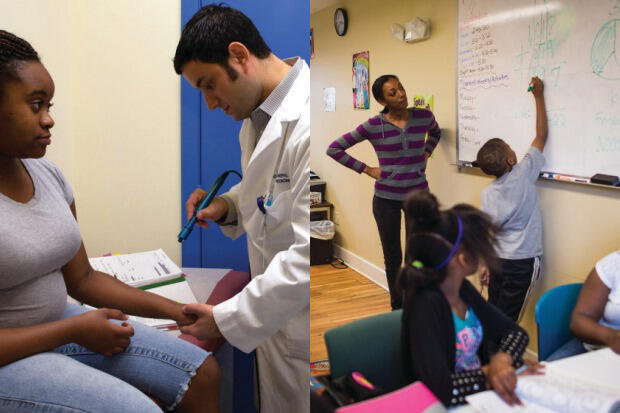
Oct. 3, 2014
VCU Center on Society and Health: Health care is necessary to good health but not sufficient on its own
Share this story
Quality health care is necessary to improve the health of disadvantaged populations, but it is not enough to eliminate the adverse effects of limited education, according to a new policy brief released by Virginia Commonwealth University Center on Society and Health.
The brief, titled “Health Care: Necessary But Not Sufficient,” features new data from Kaiser Permanente, an integrated managed care consortium, and is supported by the Robert Wood Johnson Foundation.
Key Data Points Include:
People with less education have worse health than those with more education — even when they have the same access to health care. According to new Kaiser Permanente data, 69 percent of adults with a college education describe their health as “very good” or “excellent,” compared to only 32 percent of those who lack a high school diploma.
Even in countries with universal health care access, this pattern holds true. In the United Kingdom, where the entire population has access to the National Health Service, illness rates are higher for people with less education.
The brief is a product of the VCU Center on Society and Health's Education and Health Initiative, a program to raise awareness about the links between education and health. It is the third in a series of four briefs. Read issue brief one and issue brief two.
Below is an excerpt from Health Care: Necessary But Not Sufficient.
Will improved access to health care remove the health disadvantage that exists for people with less education? Will health care reform make high school dropouts as healthy as college graduates?
Not necessarily. Health care is necessary but not sufficient for improved health; in fact, health care accounts for only about 10–20 percent of health outcomes, according to some experts. Having access to good doctors and medicines is certainly important. And health care has a bigger impact for people with limited education than for those with more education, but access to health care by itself doesn’t eliminate the relationship between education and health.
People with fewer years of education have worse health outcomes than those with more education, even when they have the same access to health care.
Consider data from Kaiser Permanente, one of the nation's oldest health systems, in which all members of the plan have access to a similar level of care and network of providers. In a 2011 survey of members of Kaiser Permanente of Northern California, 69 percent of adults aged 25–64 with a college education described their health as "very good" or "excellent," compared to only 32 percent of those lacking a high school diploma (Figure 1).
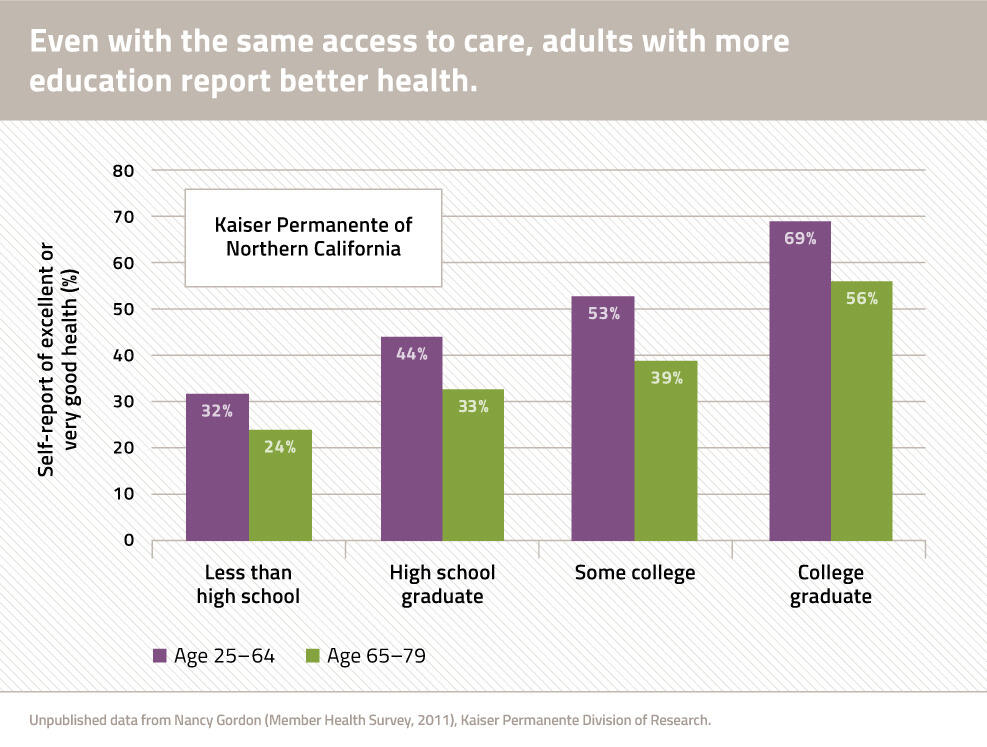
A similar trend is found among Kaiser members reporting physical health problems that interfere with daily activities: among adults aged 25–64, such physical health problems were reported by 36 percent of those with less than a high school education, but by only 13 percent of college graduates (Figure 2).
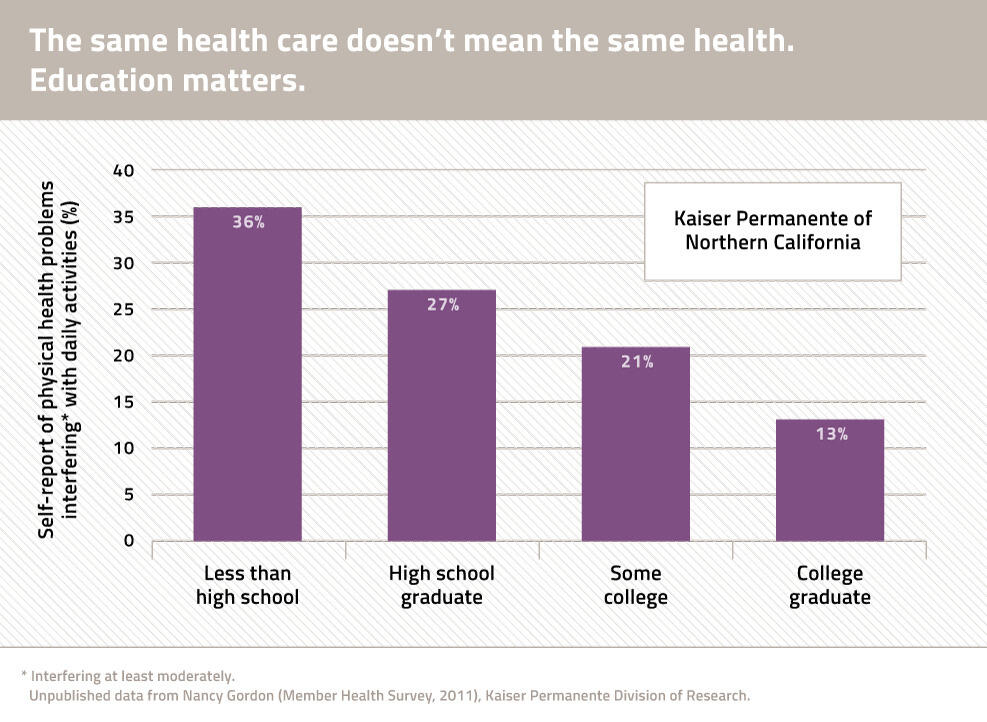
And it’s not true just for self-reports of problems — it’s also true for verifiable health outcomes, like mortality. For example, Kaiser data also show that the risk of death is lower among diabetes patients with more education (Figure 3), despite the fact that members at all education levels have access to the same health system for diabetes care. The Kaiser data offer a reminder that medical care is not everything: People with less education lack access to other resources (financial resources, community resources such as access to healthy food and others) that affect the management of diabetes and its progression to early death.
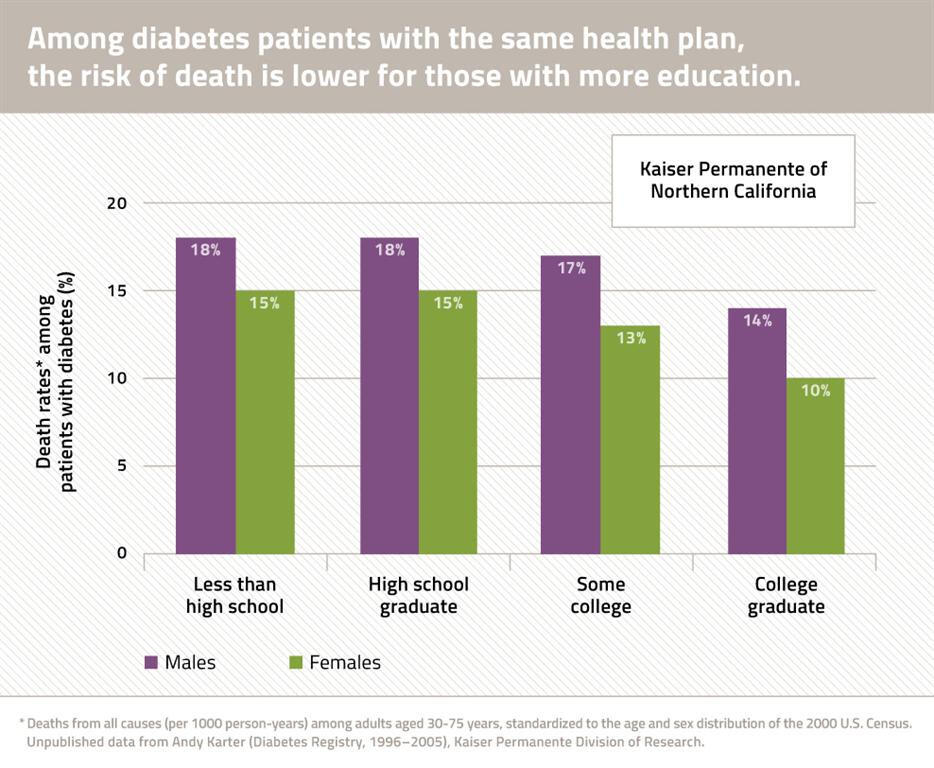
Even in countries where the entire population has access to a single health system, this same pattern is seen. For example, in the United Kingdom, where there is universal access to the National Health Service, illness rates climb for people with less education (Figure 4).
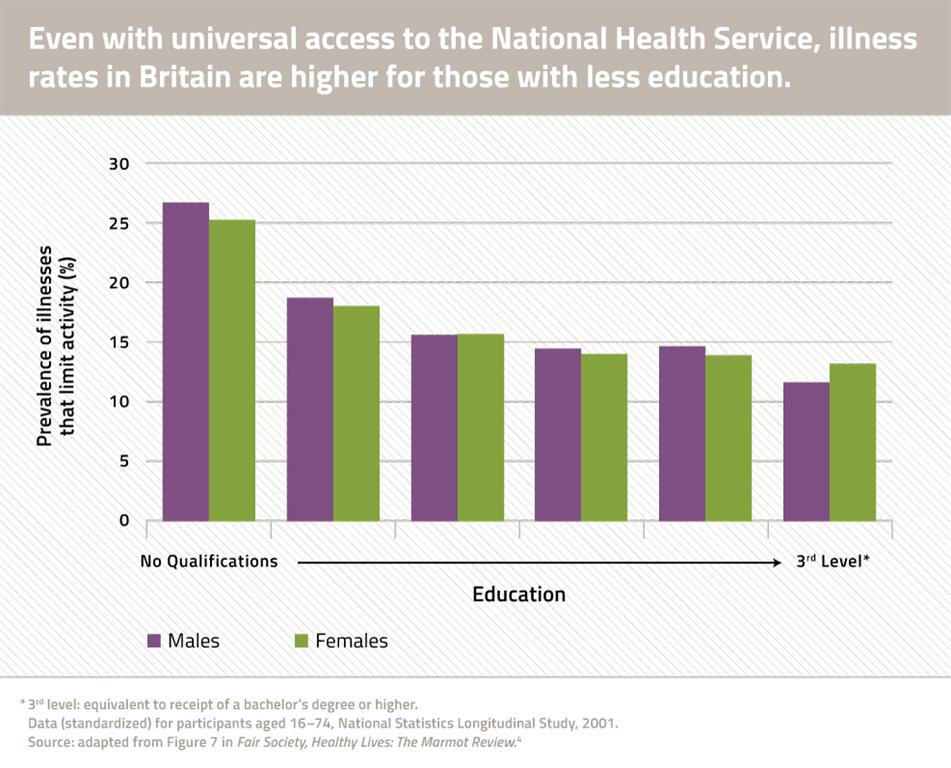
Feature image copyright Annette Bonnier (photo on left) and Mike Belleme (photo on right.) Used with permission from the Robert Wood Johnson Foundation.
Subscribe for free to the weekly VCU News email newsletter at http://newsletter.news.vcu.edu/ and receive a selection of stories, videos, photos, news clips and event listings in your inbox every Thursday. VCU students, faculty and staff automatically receive the newsletter. To learn more about research taking place at VCU, subscribe to its research blog, Across the Spectrum at http://www.spectrum.vcu.edu/
Subscribe to VCU News
Subscribe to VCU News at newsletter.vcu.edu and receive a selection of stories, videos, photos, news clips and event listings in your inbox.









